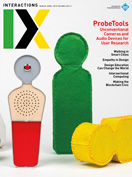Authors:
Phoebe Sengers
What role can technology designers play to support the needs of rural communities? While there is significant attention in HCI to urban computing, there is little literature in HCI that addresses how technologies play out in or could be designed for specifically rural spaces. Recently, my reading is ranging further afield to inform infrastructure design for rural communities.

Phillip Vannini's Ferry Tales: Mobility, Place, and Time on Canada's West Coast (2012) describes one such infrastructure: the ferry system in British Columbia, which connects small island communities to the mainland. Ferry Tales makes manifest two key aspects of rural infrastructure design. First, the pace, stability, and length of ferry connections play a large role in determining whether and how it is possible to live on rural islands. This reminds us of the deep ways in which rural infrastructures shape the possibilities of life in rural communities, and thus how consequential the design decisions that shape them are for residents. Second, Ferry Tales makes it clear that rural infrastructure is not just rural; ferries literally connect city and country and condition their interchange.

The same is true for digital networks. Jenna Burrell's recent First Monday article, "Thinking Relationally About Digital Inequality in Rural Regions of the U.S." (June 2018; https://journals.uic.edu/ojs/index.php/fm/article/view/8376/7421), analyzes challenges faced by Internet users in rural Mendocino County, California. She finds that rural networks are unstable and expensive because access, repair, and maintenance in out-of-the-way places are low priorities for major providers. The impact of this poor quality is exacerbated when the Internet connects city designers and dwellers with rural residents. First, apps and services designed with city connections in mind demand bandwidth that's out of reach to rural residents, simply to function. Second, when city dwellers assume high-speed, reliable networks as a normal basis for action (e.g., constant connectivity, large file access), they see no reason to accommodate rural residents' inability to act in the same ways—and sideline them as a result.
On remote islands with severe ocean conditions, Watts argues, designers are allergic to the hubris that characterizes those from the city.

These issues suggest the value of developing a specifically rural perspective on infrastructure design. This is the topic of Laura Watts's lyrical new ethnography, Energy at the End of the World: An Orkney Islands Saga (2019). Watts describes how future marine energy technologies are being developed at a community research center on the Orkney Islands, off the northeastern coast of Scotland. On remote islands with severe ocean conditions, she argues, designers are allergic to the hubris that characterizes those from the city. There, nature is a living force that often breaks infrastructure; engineers are not quick to declare victory. Rural communities building futures routinely meet with an incomprehension of their needs and possibilities from city centers. Orkney, 15 hours from London, is not on its map of the future, and that regularly results in roadblocks for Orkney. In exploring rural residents' creativity and tenacity, Watts indicates that London just might be wrong.
Phoebe Sengers is an associate professor in information science and science & technology studies at Cornell. Her group integrates ethnography, history, and design to explore rural, working-class, and Global South experiences of technologies; trace emerging entanglements between people and data; and speculate about alternative pasts and futures. [email protected]
http://cemcom.infosci.cornell.edu/projects/how-we-became-modern/
Copyright held by author
The Digital Library is published by the Association for Computing Machinery. Copyright © 2019 ACM, Inc.








Post Comment
No Comments Found